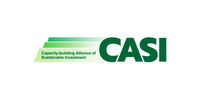November 7, 2025 | São Paulo, Brazil
Sustainability has been gaining momentum in most countries in the past decade, driven by a confluence of factors including evolving policies, technological advancements, and an increasing global awareness of sustainability challenges, especially stemming from climate change. Emerging markets and developing economies (EMDEs) are becoming key players in this process, recognizing their fragility and the critical role sustainable finance can play in fostering both economic development and environmental protection.
In most EMDEs, the private sector has begun to integrate sustainability into its core business models, moving beyond regulatory compliance to actively contribute to sustainable development goals. Investors are also increasingly focusing on ESG-compliant assets. However, most of these practices are not yet at scale, partially due to the lack of capacity in designing policies and standards, developing financial products and solutions, and preparing bankable sustainable projects.
Objective of the Event
This Forum will explore how we can harness the current momentum in global sustainability efforts, including new NDCs announced by countries, and accelerate the scaling-up of sustainable finance for the Global South in the context of COP30.
Jointly organized by the Capacity-building Alliance of Sustainable Investment (CASI), Principles for Responsible Investment (PRI), and the Institute for Climate and Society (iCS), this half-day forum serves as a side event of the PRI in-person and pre-event of the COP30 and aims to facilitate knowledge exchange, discussions and collaborations that will help address these challenges, providing practical solutions to accelerate the adoption of sustainable finance on scale.
Why you should attend?
- Exclusive Networking Opportunities: Build meaningful connections with global leaders, investors, and practitioners shaping sustainable finance worldwide, with a strong focus on South America and other EMDEs. The Forum provides a platform to foster partnerships that bridge regions and create synergies for COP30 and beyond.
- Thought Leadership and Expert Insights: Gain access to first-hand perspectives from distinguished experts on the latest trends, good practices in sustainable finance through keynote speeches, panel discussions, and interactive sessions.
- Capacity-Building Focus: Explore practical ways to enhance institutional capacity, knowledge-sharing, skills development, and stakeholder collaboration and learn how to develop bankable projects to mobilize capital and scale sustainable impact.
Join us online
- Zoom Link: https://sciencespo.zoom.us/j/92724362859?pwd=u3d8gpZBL8lGL9ClUKd68Dh6O2bBMI.1
- Meeting ID: 927 2436 2859
- Passcode: 628217
Agenda
11
30
-
12
00
12
00
-
12
10
12
10
-
12
30
12
30
-
12
45
12
45
-
12
50
12
50
-
13
40
Session 1: Enhancing Interoperability of Sustainable Finance Taxonomies and Cross-Border Green Capital Flows
This session will explore the evolution of sustainability taxonomies, with a particular focus on enhancing interoperability of taxonomies (e.g., via use of the Common Ground Taxonomy and efforts to develop regional taxonomies) and boosting cross-border sustainable capital flows, leveraging innovative product labelling tools as well as blended financing instruments and guarantee facilities provided by MDBs.
13
40
-
14
30
Session 2: Disclosures and Sustainability Investing
Global sustainability reporting costs for SMEs surged by 40% since 2022, according to GRI, with 78% of small businesses citing compliance as a barrier to adopt ESG labels. Meanwhile, AI-driven disclosure tools have demonstrated 60-80% cost reduction in pilot cases, as indicated by the World Economic Forum. This session will focus on innovative digital solutions that enable businesses, especially SMEs and carbon-intensive companies, to meet global sustainability disclosure requirements efficiently and affordably. It will also explore how institutional investors will adapt to the new landscape of sustainability disclosure and make financing more available to SMEs and transition companies, including via developing innovative investment products on companies with enhanced ESG performance.
14
30
-
14
40
14
40
-
15
00
Speakers

Carlos Takahashi
Director of the Brazilian Financial and Capital Markets Association (ANBIMA)
More Information

José Pedro Bastos Neves
General Coordinator of Sustainable Finance at Brazil Ministry of Finance
More Information

Daisy Shen
Partner, Head of Environment, Social and Governance (ESG) Advisory Head of Energy and Natural Resources at KPMG China
More Information

Ardhi Rasy Wardhana
Executive Assistant for Multilateral Cooperation, Office of Presidential Special Envoy at International Trade & Multilateral Cooperation
More Information




















